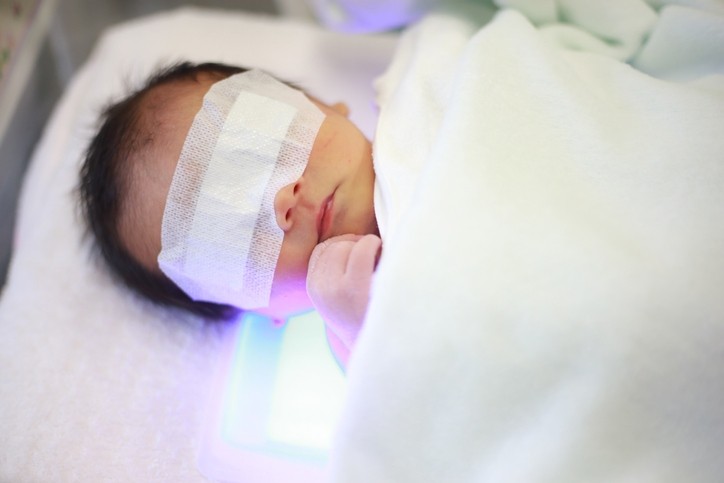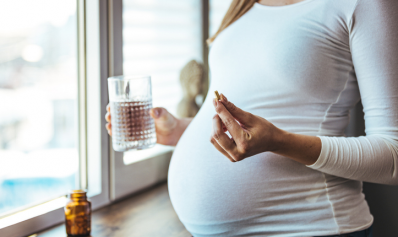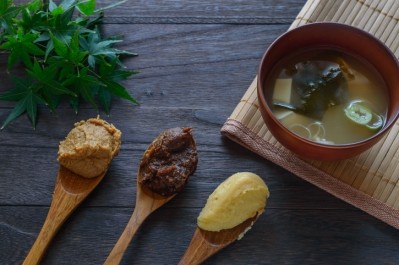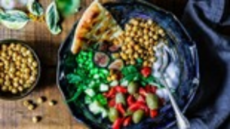'Preventive strategy': Researchers to analyse evidence that prenatal probiotics can reduce newborn jaundice

Expectant mothers will consume multistrain probiotics in this randomised controlled trial, where researchers will study the effects of prenatal probiotic supplementation on the gut microbiome of infants and its potential to manage jaundice in newborns.
Neonatal jaundice is a yellowish discolouration of the skin and sclera of neonates in the first month of life due to elevated levels of bilirubin in the blood (hyperbilirubinaemia). Hyperbilirubinaemia is a total serum bilirubin (TSB) level measurement of more than 5 mg/dL or >85.5 µmol/L in 24 hours and 12 mg/dL or 205 µmol/L after a day. Neonatal jaundice needs comprehensive management to avoid severe complications such as brain damage.
At present, management of neonatal jaundice remains challenging. There are treatment options such as phototherapy, but these have various impacts on the vision, hearing and alertness of the newborn. It also affects the circadian rhythm of babies and causes dehydration, hypocalcaemia and renal damage.
“Neonatal jaundice is a common and life-threatening health problem in neonates due to overaccumulation of circulating unconjugated bilirubin. Gut flora has a potential influence on bilirubin metabolism. The infant gut microbiome is commonly copied from the maternal gut. During pregnancy, due to changes in dietary habits, hormones and body weight, maternal gut dysbiosis is common, which can be stabilised by probiotics supplementation,” wrote the researchers in BMJ Open.
“Gut flora is instrumental in converting conjugated bilirubin into stercobilinogen and urobilinogen, facilitating its excretion as stercobilin in faeces and urobilin in urine. Interestingly, the neonatal gut microbiome is primarily established by the maternal gut and milk microbiome during pregnancy and lactation periods. Therefore, remodelling the maternal microbiome provides us with a potential opportunity to shape the gut microbiome in newborns.”
However, whether probiotic supplements can reach the baby through the mother and reduce the incidence of neonatal jaundice has not been studied yet. Therefore, to evaluate the effects of prenatal maternal probiotic supplementation on neonatal jaundice, the researchers have started a randomised double-blind placebo-controlled parallel group clinical trial that began in January 2024 and will end in June 2025.
The trial
Ninety-four pregnant women between 28 and 35 weeks of gestation will be recruited from Hong Kong’s Prince of Wales Hospital. They should be between the ages of 18 to 45 years old, having a normal singleton pregnancy, and planning to exclusively breastfeed their offspring. They should also not be on antibiotic treatment during enrolment and the trial period.
The trial will begin at 36 weeks of gestation, when participants will be randomly and equally divided into two groups. One group will take maltose containing Vivomixx, which contains 450 billion colony-forming units per sachet. It is a microbiotic food supplement, containing eight strains of live bacteria, including S. thermophilus DSM24731/NCIMB 30438, Bifidobacterium breve DSM24732/NCIMB 30441, Bifidobacterium longum DSM24736/NCIMB 30435, Bifidobacterium infantis DSM24737/NCIMB 30436, Lactobacillus acidophilus DSM24735/NCIMB 30442, Lactobacillus plantarum DSM24730/NCIMB 30437, Lactobacillus paracasei DSM24733/NCIMB 30439, Lactobacillus delbrueckii ssp. bulgaricus DSM24734/NCIMB 30440.
The other group will take the placebo which is only maltose. Both active Vivomixx and placebo are similar in colour and taste with the same white sachet package, and will be supplied by Mendes, a European microbiotic company.
Participants will take 1 sachet of maltose-Vivomixx or placebo orally per day until 1 week postpartum. Since this is a double-blind trial, neither the study participants nor researchers will know which participants are placed into either group.
The main aim of this study will be to observe the incidence of hyperbilirubinaemia among participants’ offspring. The level of bilirubin in the skin (sternal transcutaneous bilirubin or TcB) will be measured within the first 2 days and again on the seventh day of life using the Dräger Meter JM-105, a non-invasive device. If the TcB level is within 3 mg/dL of the phototherapy treatment threshold or if it reaches 15 mg/dL, a blood test (total serum bilirubin or TSB) will be done to confirm the results.
Hyperbilirubinaemia will be diagnosed if the TSB is more than 5 mg/dL within 24 hours or more than 12 mg/dL after the first day. Since this trial will involve administering probiotics during pregnancy, the researchers will compare the outcomes for all types of jaundice, including jaundice diagnosed within the first 24 hours of life, between the two groups, taking into account the prenatal exposure to probiotics.
Participants and their offspring will also be observed in terms of pregnancy outcomes, such as foetal well-being, diabetes, and infection. Milk and stool microbiome will be analysed as well. Breast milk and infant stool samples will be collected within the second and on the seventh days of giving birth, and participants’ stool samples will be collected before the start of the trial at 36 weeks of gestation and after 3 weeks from the start of the trial.
“From lines of literature, we found that probiotic species can modulate the physiology of bilirubin metabolism. Such bacteria include but are not limited to Bifidobacterium, Lactobacillus, Streptococcus and Saccharomyces species,” said the researchers.
“As compared with non-jaundiced babies, those affected by jaundice had significantly lower levels of Bifidobacterium (B. adolescentis, B. bifidum and B. longum), which imply Bifidobacterium has a bilirubin reduction effect.”
The researchers also noted that probiotic Lactobacillus rhamnosus GG has a significant effect on inhibition of serum bilirubin level and increasing defecation frequency to enhance bilirubin excretion. As for Saccharomyces boulardii, an animal model study showed that it can improve intestinal barrier function in obstructive jaundice. Streptococcus thermophilus is also effective in treating neonatal jaundice.
Study implications
Previous research and evidence has shown probiotics to be effective in shaping the maternal-offspring microbiome. The researchers have also found evidence suggesting that maternal probiotic supplementation not only positively influences the breast milk and infant gut microbiomes, but also enhances maternal health during pregnancy.
They explained that good bacteria in a newborn's gut do more than just convert conjugated bilirubin into a form that can be easily excreted. They also help keep the baby's gut healthy and increase frequency of defecation. While these good bacteria can't fix serious causes of high bilirubin levels like the breakdown of red blood cells (haemolysis), they do help the body get rid of bilirubin. This reduces the amount of bilirubin that gets reabsorbed back into the blood from the gut. However, if there's an imbalance in the gut bacteria (dysbiosis), it can lead to more unconjugated bilirubin being reabsorbed into the bloodstream, worsening jaundice.
So far, there have not been any reports of adverse effects from these supplements during pregnancy. While directly administering probiotics to neonates can treat and prevent neonatal jaundice, the researchers said that direct neonatal administration of probiotics is not always practical. Therefore, they are keen to establish if breast milk can be modulated by probiotic supplementation during pregnancy, reshaping the infant’s gut microbiome and reducing neonatal complications such as jaundice.
“To this end, we hypothesised perinatal probiotic supplementation in pregnancies may serve as a feasible approach to preventing neonatal jaundice and designed this randomised controlled trial to evaluate its effect. Our study will revolutionise current neonatal care practices, offering a non-invasive, safe, inexpensive and potentially highly effective preventive strategy for neonatal jaundice. It also underscores the critical role of the maternal microbiome in infant health, paving the way for new approaches in prenatal care,” said the researchers.
Source: BMJ Open
DOI: https://doi.org/10.1136/bmjopen-2023-083641
“Preventive effect of prenatal maternal oral probiotic supplementation on neonatal jaundice (POPS Study): A protocol for the randomised double-blind placebo-controlled clinical trial”
Authors: Bekalu Kassie Alemu, May Wing Lee et al.
Infant and Maternal Nutrition will be a major topic at Growth Asia Summit 2024 – join us in Singapore to learn about market opportunities and glean insights from major industry experts. Find out more here.

















